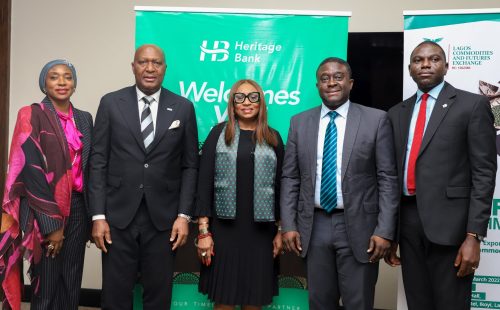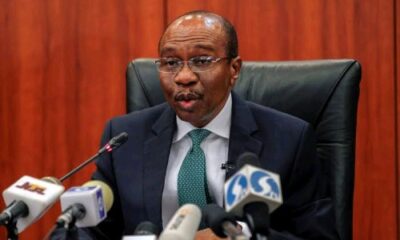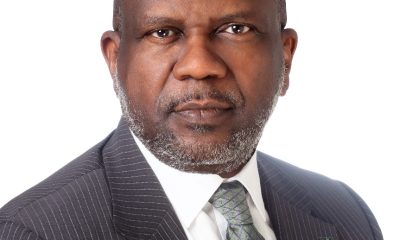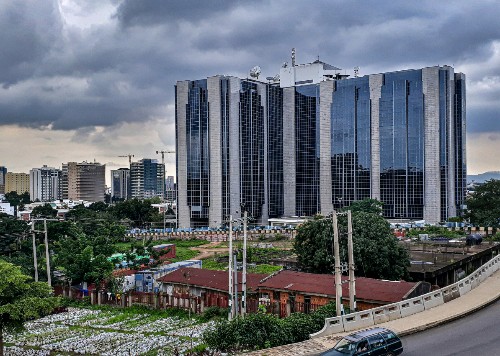Heritage Bank Plc, Lagos Commodities and Futures Exchange (LCFE), and other participating financial institutions explored opportunities on export revenue from the Commodities Ecosystem as part of its support to the Central Bank of Nigeria’s (CBN) to raise $200billion in foreign exchange repatriation from the non-oil exports over the next three to five years.
At a breakfast meeting organized by LCFE with bankers, tagged, “The CBN RT200 FX Programme: And Potential of Export Revenue from the Commodities Ecosystem,” had in attendance representatives from Heritage Bank, FSDH, Agvest Limited, Novo Merchant Bank amongst others.
Speaking on the opportunities for financial institutions in the CBN RT200 FX Programme, Olugbenga Awe, Divisional Head, Agribusiness, Natural Resources & Project Development, Heritage Bank stated that the promotion of investment in commodities ecosystem by financial institutions in partnership with LCFE in its various assets traded in Agric commodities, energy, and solid minerals would increase liquidity support from local commodity exportation to boost the race for the $200billion in FX repatriation and reduce the pressure on exchange rate.
Meanwhile, he identified challenges that expediently needed to be addressed which may likely hinder financial institution’s efforts on supporting the commodities ecosystem to drive the CBN’s RT200 FX target, such as inadequate export finance resources, lack of dependable source of local product prices, risk of haulage to bad roads amongst others.

Awe explained that to significantly boost local production of exportable commodities and drastically reduce the country’s dependence on oil revenue, financial institutions must play the role of market markers to the Commodity Exchange (COMEX), thereby bringing liquidity to the Exchange.
According to him, with COMEX as a risk mitigation platform, there is a need for the Warehouse (WR) finance structure to be registered with LCFE and the collateral management in place, which is within the parameters set by banks.
He further explained that banks must actively participate in crop receipts, liaise with their brokers to develop the value chain around a well-market structure warehouse receipts systems (WRS). This, he said would help stimulate demand amongst players from the aggregators, off-takers for standardized contracts that help deepen the value chain while providing financing that increased volumes traded.
Awe, however, reiterated that promoting investment in commodities ecosystem via structured WR finance would bring about value addition to commodities with the help to moderate the prices, as the expected increase in demand would increase revenue export and make deposit money banks self-sufficient in meeting the FX needs of their customers.
Awe, who enumerated how financial institutions can partner with commodity exchange especially LCFE to deepen their footprints in various asset classes traded by LCFE, also referenced what Heritage Bank is doing in the Wheat Value Chain together with CBN investing N40billion, which will scale up wheat production during harvest season.
According to him, whatever can be achieved in wheat can be replicated across the various value chains in rice, maize, others and ensuring that there is a link to the commodity exchange.
MD of LCFE, Akin Akeredolu-Ale, who commended Heritage Bank for its sterling efforts in deepening its footprints in agro-business, called on banks and other organizations to take advantage of the catalytic and transformational approach to support the CBN RT200 FX initiative.
He stressed that to achieve the target, there was a need for the creation and registration of Bank Commodity Desks with LCFE and Central Securities Clearing System (CSCS).
He noted that the stakeholders’ structure in financing the commodities ecosystem includes Commodity Exchange, Commercial Banks, Non-Interest Banking, Merchant Bank.
Akeredolu-Ale, who decried that the Nigerian economy was still import driven and depended largely on the export of petroleum to meet FX earnings, revealed that LCFE has lined up products such as commodity instruments, commodity-backed notes, Exchange-traded funds, Commodity Spot Contracts amongst others as a bumper for driving huge export revenue from commodities ecosystem to fast track the actualization of $200billion in FX repatriation.

 BIG STORY4 days ago
BIG STORY4 days ago
 BIG STORY14 hours ago
BIG STORY14 hours ago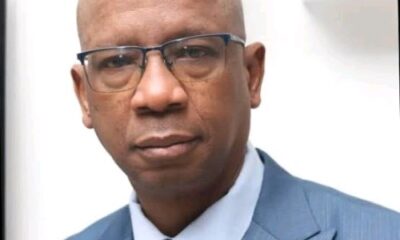
 BIG STORY2 days ago
BIG STORY2 days ago
 BIG STORY1 day ago
BIG STORY1 day ago
 BIG STORY17 hours ago
BIG STORY17 hours ago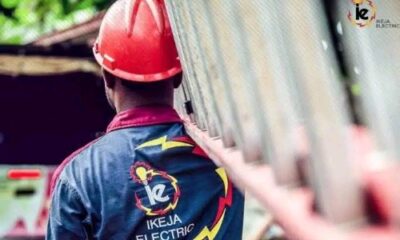
 BIG STORY2 days ago
BIG STORY2 days ago
 BIG STORY2 days ago
BIG STORY2 days ago
 BIG STORY5 days ago
BIG STORY5 days ago



